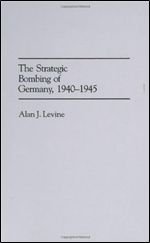A possible purchaser of such pamphlets as Whitney’s and, certainly, Gascoigne’s from the printers at St Paul’s was Thomas Whithorne, whose manuscript of ninety folio leaves relating his life, achievements, and thoughts from his birth in 1528 to the probable date of writing in 1576, was entitled, by Whithorne himself, ‘A book of songs and sonnets, with long discourses set with them of the child’s life, together with a young man’s life, and entering into the old man’s life’ (1962, manuscript title page). The manuscript is addressed ostensibly to a friend in order to provide context for the verses ‘not only to show you the cause why I wrote them, but also to open my secret meaning in divers of them’ (1). This explanation echoes a statement by the fictional editor of Gascoigne’s A Hundred Sundry Flowers, who claims to have gathered and ordered the poems of acquaintances with a rehearsal of ‘the very proper occasion whereuppon [each] was written’ (2000: 145). The most sustained example of such prose contextualizing of verses and explanation of their secrets in A Hundred Sundry Flowers is ‘The Adventures of Master F. J.’, which narrates in a titillating manner an amorous affair between F. J. and Lady Elinor.247
Whithorne started his career in the 1540s as an amanuensis and apprentice of the court poet and musician John Heywood, helping him to transcribe, and possibly set, the poems of Sir Thomas Wyatt and the Earl of Surrey. The device used by Tottel, and later Gascoigne, of providing their verses with titles that imply specific occasions clearly provides Whithorne with one potent model for the narration of aspects of his life. Whithorne was a music master and superior household servant to a series of wealthy women, with many of whom he describes himself conducting amorous dalliances, involving the writing and the exchange or singing of verses, whose occasions and coded allusions Whithorne meticulously explains: ‘I made this song somewhat dark and doubtful of sense, because I knew not certainly how she would take it, nor to whose hands it might comen after that she had read it’ (1962:31).
Whithorne’s pleasure and evident pride in his own elegance and mastery of a coded language of courting is, however, persistently juxtaposed to passages of anxiety about his reputation, his moral integrity, and his dignity—anxiety that leads to an almost obsessive sifting and explaining of his intentions and probity:
This lo! did touch me somewhat nigh and brought me in great perplexity. For one while the suggestions and motions of my ghostly enemy would provoke my flesh to rebel against the spirit; and another while God’s grace working in me (His name be praised for it) would put into my mind and remembrance those of the Ten Commandments which do say ‘Thou shalt not commit adultery’ [...] So that upon the consideration hereof, I was thoroughly determined that, whatsoever came of it, I would by God’s grace never defile her wedlock bed. (87)
Here the language of coded courting is overtaken by the language of self-justification and moral integrity that were also central to Bale’s and Forman’s presentations of their lives.
While narratives of courting and intimate secrets provide a powerful model for Whithorne, his manuscript is also a career narrative which shares much in common with the failed career narratives of Tusser or Gascoigne, but also with Forman’s hubristic celebration of his own achievements. Whithorne’s many employments included music tutor to wealthy women, a ‘chief waiting-man’, a ‘schoolmaster and tutor’ to a Cambridge undergraduate, the London agent of a man of affairs, and, at the apex of his career, Master of Music to the Archbishop of Canterbury. This is in many respects a successful career, but there are repeated moments when
Whithorne describes his despondency at yet another new start after his hopes have been disappointed:
It rather gave me cause to call to my remembrance the whole discourse of all my former life. And then, considering of everything that I had passed, how I had been many times in hope of prosperity, and then presently out of security; and then tossed from post to pillar, now up, now down, by the illusions of flattering and fickle fortune, who would never suffer me to be in quiet when I was well and in prosperity. (138-9)
Whithorne belongs to the same uncertain social class as many of the mid-century writers, and shares their fluid and vulnerable social identity. This is particularly evident in his repeated insistence on his social and professional status. He is dismayed, early in his career, to be employed, like the equally mortified Thomas Howell, as ‘a serving-creature or servingman, it was so like the life of a water-spaniel’ (28). Later on, he repeatedly insists on his social status in the face of challenges from others, asserting his equality with a Cambridge tutor (101-2) and his dignity as a teacher of music, ‘one of the seven sciences liberall’ (46, 193), and reflecting bitterly on his enforced deference at the tables of his social superiors:
When I called to my remembrance how, when as heretofore at sundry times I had been in the companies of those who be worshipful, right worshipful, and also honourable, and saw the meaner sort (in comparison of their estates) were driven to put up quietly some injuries at their hands; also how such things, which the inferior sort either said or did in the presence of their greaters or betters, was but allowed of as it pleased their superiors to take it [...] [it] learned me that I should not keep company with my greaters. (138)
Mary Thomas Crane has described the importance of aphorisms and commonplace books in ‘framing’ young men in accordance with approved models: ‘Framing, then, implies the construction of the self in accordance with a pre-existing rule, both grammatical and ethical,’ providing ‘a kind of fortification for the mind’ (1993: 73). Just such a use of aphorisms and proverbs to construct an approved self and fortify the mind is everywhere evident in Whithorne’s manuscript. One of its functions appears to be as a commonplace book, a place for Whithorne to store and apply lists of proverbial precepts. Before embarking on his career as a music tutor to rich women, Whithorne arms himself by listing as many misogynist proverbs and anecdotes as he can remember, concluding his collection with the confident assertion that he will henceforth ‘give no heed to the allurements, enticements and snares of women’ (21), a statement which his subsequent narratives largely support, with a significant wobble or two. The process by which he frames and fortifies himself is particularly evident at his lowest point, when his hopes of wealth and employment as a London agent are shattered by the death of his employer and his own health is threatened by the plague in London. Faced with such a crisis, Whithorne copies into his manuscript, and often versifies, pages of bracing precepts: ‘I now again, as my leisure served me, gave myself to the reading godly and grave books, out of the which I took certain notes and counsels for me to have in mind at this time’ (121).
A major framework for Whithorne’s narrative of his life is the idea of the ages of man (see Dove 1986; Bedford and Kelly 2007:15-20). Whithorne repeatedly assesses his own progress within this paradigm. In the ‘age named adolescency, which contin-ueth [from fifteen] until twenty and five’ (11), Whithorne arms himself against women because he has heard ‘that in this age Cupid and Venus were and would be very busy to trouble the quiet minds of young folk’ (12). Later on, finding himself some three or four years into ‘the juventute, the which is from the twenty-fifth until forty years of age’, he is not surprised to find himself easily choleric because that humour chiefly reigns ‘in the second and last part of the young man’s age’ (66). Whithorne not only assessed his behaviour and progress according to this detailed paradigm of a man’s life, he had at least four paintings made of himself at different stages in his life, scrutinizing his images, as superior mirrors, for appropriate signs of his stage in life (12,38,116). When preparing for the printing of a selection of his Songs in 1571, he takes great care over the image of himself that will be presented to the public, deciding to preface the volume with an engraved portrait, his coat of arms, and a motto that puns elaborately on his name:
Seeing the books with the music in them should be as my children, because they contained that which my head brought forth [...] also because they should bear my name, I could do no less than set in every one of them their father’s picture or counterfeit, to represent unto those who should use the children the form and favour of the parent. (175)
Whithorne is presented by his narrative as a man anxious to conform to the best approved models, but for whom such conformity is a continual effort of self-creation and self-fashioning, using the forms and models available to him. Barbara Traister has written of Simon Forman that he had an obsession with writing, of turning ‘himself into text’ and that he used ‘his books [...] to shape and present himself and to make orderly and comprehensible a world that might otherwise have seemed merely chaotic’ (2001, pp. xii, 144). The observation is suggestive for Whithorne. His manuscript strives to present, in prose and verse, versions of himself to parallel the self-portraits which he hung in his room and which gave him such pleasure. Even the technical process of writing is carefully and idiosyncratically fashioned; Whithorne uses a ‘new Orthografy’, a spelling system involving special letters that was culled from what he considered the best authorities, but which he makes distinctly his own, by altering and adapting and selecting from among his approved models, painfully inventing a new and perfected form for his written English (1961: 4-6). Similarly, Whithorne’s life is constructed out of the multiple forms and paradigms available to him, but it is neither commonplace nor second-hand. His manuscript is an extraordinary, poignant, and in many ways a triumphant document which, like his ‘new Orthografy’ manages to produce out of available materials something entirely new in the sixteenth century: an extended account of a middling kind of life, contradictory and muddled, and rich in introspective reflection. It is a life and voice that seems in some respects strikingly familiar to us now in the twenty-first century.248
Although unique, Whithorne’s manuscript shares much with other examples of sixteenth-century life-writing in English. What characterizes the majority of such texts is a sense of displacement, actual or threatened, from settled roles and identities, and a desire to construct narratives that make sense of, or justify, unsettling experience. Travellers' tales and accounts of military campaigns more fundamentally call into question the stability of a system of differences in which English selves, defined as honourable, civilized, and virtuous, can be easily distinguished from disturbing others. Characteristically, in sixteenth-century English life-writing, the narratives are told by those who place themselves precariously on the social margins, geographically and socially, figuring themselves as excluded by ill fortune or a hard-hearted establishment from social recognition and reward. Sixteenth-century personal lifewriting is abundant, but it is found in unfamiliar forms and genres. The selves that are articulated by such writing, socially fluid, unsettled, and fragmented, were a new phenomenon in the sixteenth century, articulating new selves and perspectives out of the available materials.
PRIMARY WORKS
Baker, Richard (1965), ‘The Firste, and Second Voyages to Guinie’, in The Principall Navigations, Voyages and Discoveries of the English Nation, ed. R. Hakluyt, repr. and ed. D. B. Quinn and R. A. Skelton (Cambridge, MA: Harvard University Press), 130-42.
Bale, John (1990), The Vocacyon of Johan Bale, ed. P. Happe and J. N. King (Binghampton, NY: Medieval and Renaissance Texts and Studies).
Churchyard, Thomas (1580), A Light Bondell of Livly Discourses.
-(1973), The Firste Parte of Churchyardes Chippes (Menston: Scolar Press).
Farmer, William (1907), ‘William Farmer’s Chronicles of Ireland from 1594 to 1613’, ed. C. L. Falkiner, EHR 22:104-30, 527-52.
Forman, Simon (n. d.), Autobiographical Psalms, Bodl., MSS Ashmole 240, 802.
-(1947), ‘Autobiography’ and ‘Diary’, in A. L. Rowse, Simon Forman: Sex and Society in
Shakespeare’s Age (London: Weidenfeld and Nicolson), 267-99.
Gascoigne, George (2000), A Hundreth Sundrie Flowres, ed. G. W. Pigman III (Oxford: Clarendon Press).
Gruffydd, Elias (1949), ‘The “Enterprises” of Paris and Boulogne’, ed. and trans. M. B. Davies, Bulletin of the Faculty of Arts: Fouad I University, 11: 37-95.
-(1950), ‘Boulogne and Calais from 1545 to 1550’, ed. and trans. M. B. Davies, Bulletin of the
Faculty of Arts: Fouad I University, 12:1-90.
Hakluyt, Richard (1993), A Particular Discourse Concerninge the Create Necessitie and Man-ifolde Commodyties that Are Like to Crowe to this Realme of Englande by the Westerne Discoveries Lately Attempted, written in the yere 1584, ed. David B. Quinn and Alison M. Quinn (London: Hakluyt Society).
Howell, Thomas (1879), The Poems of Thomas Howell (1568-1581), ed. A. B. Grosart.
Madox, Richard (1959), ‘Private Diary’, in The Troublesome Voyage of Captain Edward Fenton, 1582-1583, ed. E. G. R. Taylor, Hakluyt Society, 2nd ser., 113 (Cambridge: Cambridge University Press), 150-98.
Philips, Miles (1965), ‘A Discourse Written by One Miles Philips Englishman’, in R. Hakluyt (ed.), The Principal Navigations, Voyages, Traffiques & Discoveries, repr. and ed. D. B. Quinn and R. A. Skelton (Cambridge, MA: Harvard University Press), 562-80.
TuRBERviLLE, George (i977), Epitaphes, Epigrams, Songs and Sonets and Epitaphes and Son-nettes, ed. R. J. Panofsky (Delmar: Scholars’ Facsimiles and Reprints).
TussER, Thomas (1984), Five Hundred Points of Good Husbandry, ed. Geoffrey Grigson (Oxford: Oxford University Press).
Whitney, Isabella (1982), A Sweet Nosgay (London: R. Jones, 1573), repr. in The Floures of Philosophie by Hugh Plat (1572); and Whitney, A Sweet Nosgay (1573) and The Copy of a Letter (1567); all ed. R. J. Panofsky (Delmar: Scholars Facsimiles and Reprints).
Whithorne, Thomas (1961), The Autobiography of Thomas Whythorne, ed. J. M. Osborn (Oxford: Clarendon Press).
-(1962), The Autobiography of Thomas Whythorne: Modern-Spelling Edition, ed. J. M.
Osborn (London: Oxford University Press).




 World History
World History









